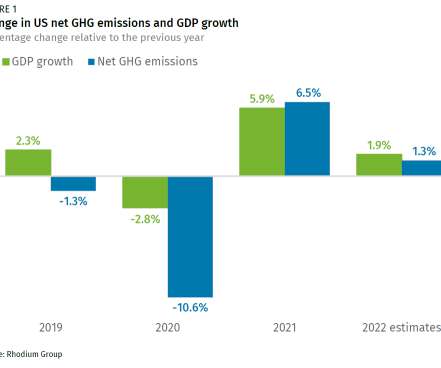Rhodium Group estimates US GHG emissions rose 1.3% in 2022
Green Car Congress
JANUARY 11, 2023
Despite efforts to continue stimulating the US economy in the wake of the pandemic, high inflation put a damper on economic growth, which was exacerbated by a spike in oil prices as a result of Russia’s invasion of Ukraine. Little change in transportation and industry. Consequently, the US economy grew 1.9% GDP increase in 2021.

























Let's personalize your content